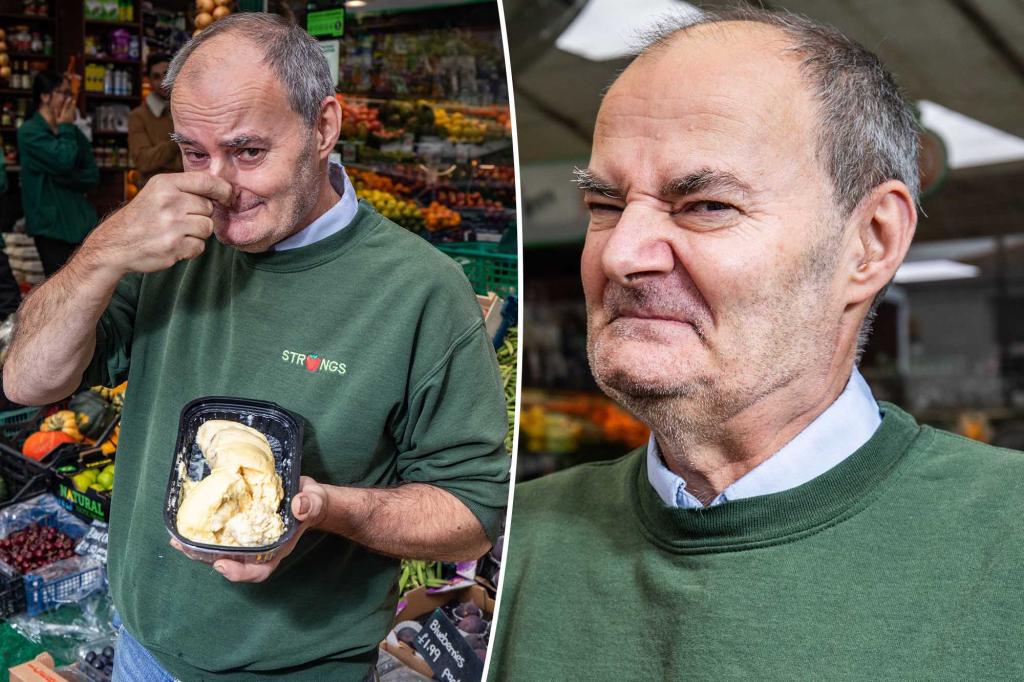The Durian Debacle: When a Fruity Aroma Sparked a Gas Emergency
In a humorous case of mistaken identity, a small town in Lancashire, UK recently experienced what residents believed was a potentially dangerous gas leak, only to discover the source was something far more exotic and harmless. The culprit behind this aromatic false alarm was none other than durian—a fruit renowned throughout Southeast Asia as a delicacy but infamous globally for its extraordinarily potent smell. This incident at Strongs Fruit and Veg shop in Lytham transformed a routine September day into an amusing anecdote that highlights cultural differences and the sometimes surprising power of nature’s more pungent offerings.
The commotion began on September 16th when concerned locals reported what they described as a “strong smell” of gas permeating their neighborhood. Taking these reports seriously, as any potential gas leak requires immediate attention, Cadent gas company dispatched an engineer to investigate the source. The situation escalated to include police officers who arrived on the scene, creating quite a spectacle outside the local fruit shop. Inside, store assistants Wai Peng Cheng and his partner Candy Pooi Kuan Lam were thoroughly confused by the sudden appearance of gas workers and law enforcement, as they hadn’t reported any issues with their premises. The mystery deepened as the engineer methodically checked neighboring businesses before finally entering Strongs, where he would soon discover the unexpected truth behind the alarming odor.
When confronted about the smell, Wai Peng immediately identified the source—several durians that had been delivered earlier that week and placed on display for sale at approximately $30 per pound. The gas engineer was initially skeptical, struggling to believe that a mere fruit could produce such a powerful stench capable of alarming an entire neighborhood. His doubt only dissipated when Wai Peng took him outside and presented him with one of the offending fruits. Upon confirming the durian was indeed responsible for the perceived gas leak, the situation transformed from one of concern to comedy. “We all just started laughing, it was hilarious,” Peng recalled, describing how the engineer nevertheless performed his due diligence by checking for actual gas leaks before departing around 4 PM, having spent nearly three hours investigating what turned out to be nothing more than an exotic fruit doing what it does best—smelling extraordinarily pungent.
Andrew Simpkins, the 61-year-old owner of Strongs Fruit and Veg, admitted his surprise at the situation’s escalation: “I knew it smelled bad but I didn’t think it would bring the gas board out.” His comment reflects the common underestimation many Westerners have regarding durian’s notorious odor. This particular fruit occupies a unique position in global cuisine—while treasured across Southeast Asia for its creamy, sweet flesh and complex flavor profile (earning it the regal title “king of fruit”), its smell has been compared to everything from unwashed socks to rotting sewage. The aroma is so potent and distinctive that throughout its native regions, durian has been banned from hotels, public transportation, and numerous other shared spaces. Signs prohibiting durian are a common sight across Singapore, Malaysia, Thailand, and other countries where the fruit is paradoxically both beloved and strictly regulated due to its olfactory impact.
The Lytham incident represents more than just a humorous misunderstanding; it showcases the fascinating cultural divide surrounding durian. For the uninitiated, particularly in Western countries where exposure to the fruit is limited, the smell can be genuinely alarming—hence the genuine concern about a potential gas leak. Meanwhile, for those familiar with durian, the aroma, while acknowledged as strong, is associated with a delicacy worth its considerable price tag. This dichotomy extends to modern culinary experiments as well. Despite its challenging bouquet, innovative chefs and food entrepreneurs continue to incorporate durian into unexpected offerings—including a New York City coffee shop that sells durian-infused lattes. As one barista from Tianjin, China explained to The Post, “That drink tastes very [good] because it’s sweet. It just adds a flavor to the coffee and then some creaminess to it.” This creative application demonstrates how even the most polarizing food items can find new audiences when presented in accessible formats.
The “gas-querade” in Lytham serves as a lighthearted reminder of how our senses can sometimes deceive us, particularly when encountering unfamiliar stimuli. What constitutes an emergency in one context might be a delicacy in another, highlighting how deeply our perceptions are shaped by cultural exposure and experience. For the residents of Lytham, the day the gas company came to investigate a fruit will likely remain a cherished local anecdote for years to come. For durian itself, it’s simply another chapter in its long history of provoking extreme reactions—from devotion to disgust—wherever it travels. As global food cultures continue to blend and intersect, perhaps more communities will come to recognize the distinctive aroma not as cause for alarm, but as the unmistakable signature of the world’s most controversial fruit, one that continues to challenge and delight the human senses in equal measure.















